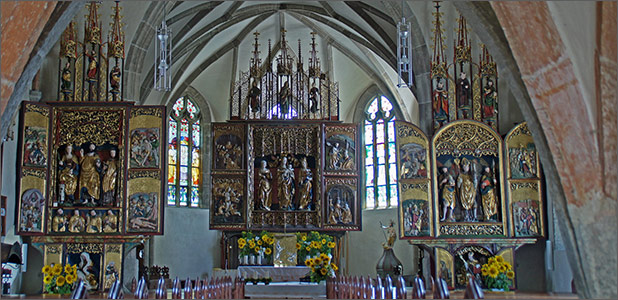-
CENTRES
Progammes & Centres
Location

In the wake of Europe’s refugee crisis, great attention is being paid to the rise of radical Islam and its incompatibility with European liberalism. This debate has been met with the response of the rise of far-right forces in several parts of the continent, as most recently demonstrated in Britain’s vote to leave the EU. The influence of the far-right, which serves as an equally palpable threat to the Union’s consensus of liberal internationalism, may not end with Brexit, however; which is why Austria’s recent presidential election serves as a timely wake-up call to those invested in the European integration project.
The Freedom Party of Austria (FPÖ) has ushered in a novel brand of populism, which may rest on traditional pillars of Euroscepticism and anti-immigration that has laid the foundation of far-right politics across the continent, but has neither advocated leaving the EU, nor found credible opposition from the erstwhile establishment of Austria. As the country repeats its presidential election, which sidelined both its mainstream, post-war parties — the Social Democrats (SPÖ) and the People’s Party (ÖVP) — in the very first round, the electorate is seeming more polarised than ever before. In line with expectations, this division along class, regional, and professional lines, is also resulting in the increasingly worrisome and widespread trend of protest-voting.
Led by Norbert Hofer, the FPÖ convincingly won the first round of the presidential election with 35% of the popular vote, leaving the incumbent SPÖ in fourth place. Although the party lost to the Greens in the second round, the Constitutional Court ruled that this round be re-held on October 2 due to improper calculation of 78,000 votes (FPÖ lost by around 30,000). While the presidential election in Austria is, to some extent, merely symbolic, it may well serve as a litmus test for the legislative elections in 2018; should the Freedom Party win the rerun of the second round, it will be expected to gain many parliamentary seats in two years as well.

FPÖ’s Parteiprogramm is centred around precedence of Austrian national interests, and unapologetically rejects immigration as un-Austrian. It invokes the nation’s rich Germanic history, culture, and language, which is likely to alienate liberal secularists. Hofer has even declared his refusal to sign on a free trade deal, and capitalised on anti-Muslim sentiment amongst Austria’s Serbian population in the aftermath of the Syrian refugee crisis. Unlike other European far-right leaders, however, Hofer is against leaving the European Union, for he admits that doing so would “undoubtedly damage” Austria. This is manifestly a brand of populism that the FPÖ has tailored to suit the electorate’s preferences, as polls suggest majority support among Austrians for remaining in the EU. The outcome of the election rerun remains uncertain, but FPÖ and its chief opponents, the Greens, highlight an interesting paradigm of political and social polarisation.
While the rise of the FPÖ is by itself indicative of anger from a beleaguered working class, its only competition in the election, The Green Alternative, is unequivocally anti-establishmentarian as well. In many other Western countries, the relevance of the environmentalist Left is restricted to the fringe, but the Greens dominate the streets of Vienna in greater proportions than their fellow European Green Party members elsewhere. Much like the FPÖ, they failed to make a major impact in the 2013 legislative elections, winning a mere 24 seats out of 183, but they have improved drastically in the presidential election, becoming one of the two choices for voters in the second round. The policies of the Greens naturally stem from an environmentalist perspective, advocating green alternatives to nuclear power, but their candidate, van der Bellen’s, biggest difference from Hofer is his desire for open borders in Europe. Austria paints a unique picture, therefore, because not only is the far-right leadership of Hofer winning wide support from the electorate, but it has also heralded the emergence of an anti-far-right bloc that unites liberals, environmentalists, and some conservatives, in much the manner that FPÖ has brought together detractors of the centrist establishment. The first round indicated a major split of the liberal vote among the Greens, the SPÖ, and Independents, which allowed FPÖ to gain a comfortable plurality; the now-overturned second round, however, has found voters preferring van der Bellen perhaps more out of an anti-FPÖ sentiment than a pro-Greens one.
This presidential election also reinforces a trend that has become more prominent in the Western political climate: protest voting. The rise of Donald Trump in the United States, Britain’s vote to leave the European Union, the right’s influence in the Danish, Finnish, Norwegian and Dutch governments, and France’s flirtation with Le Pen’s candidacy, are all perpetuating the frustration of working-class, rural voters. In the case of Austria, this frustration is two-fold, which makes it all the more difficult to pacify in the near future. Firstly, the people are fuming at the influx of refugees from the Middle East, which have prompted the government to respond harshly; the Austrian Parliament has passed a law that allows border officials to close doors on nearly all asylum-seekers, unless they face imminent threat in a transit country. While this was intended by the ruling SPÖ to win it the support of its detractors, it turned out to be a major ideological victory for the Freedom Party, instead. And secondly, a system that allowed two parties to share power for all of Austria’s post-war history has led to its own undoing; SPÖ and ÖVP have found no one else to blame for a slowing economy, and have ended up with fewer than 23% of the vote share in the first round of elections.
Austria may only consider itself a part of the growing scepticism for liberal internationalism that envelopes Western democracies, but by possibly electing the first far-right leader in Western Europe since the Second World War, it may become the country where this trend is most pronounced. FPÖ is unashamedly the vestige of Europe’s Nazi-era, and it vehemently stresses preserving Austria’s Christian identity in the face of ‘Islamisation’; if such a narrative were to win them the Austrian presidency, it could have significant repercussions for other EU countries that enter election-mode in the near future, especially France. People on either side of the debate on globalisation, thus, cannot afford to ignore this election.
The authors are research interns at the Observer Research Foundation, New Delhi.
The views expressed above belong to the author(s). ORF research and analyses now available on Telegram! Click here to access our curated content — blogs, longforms and interviews.